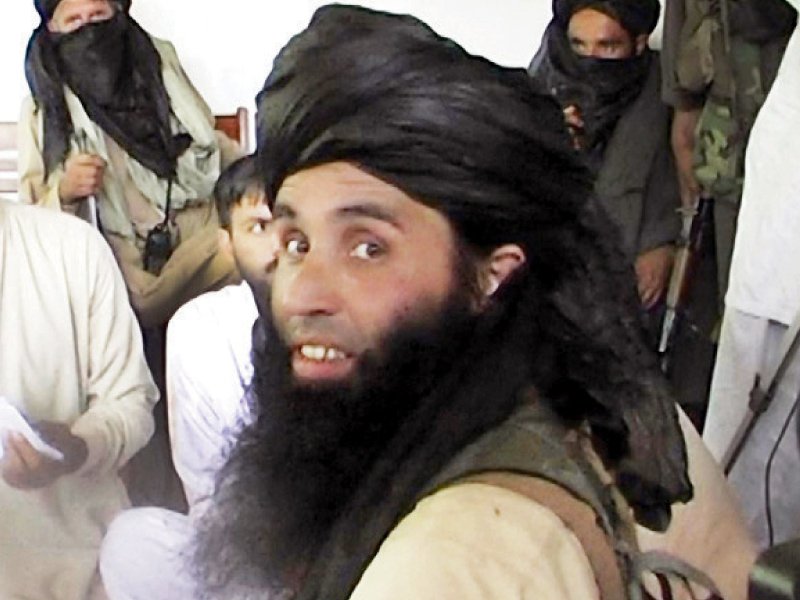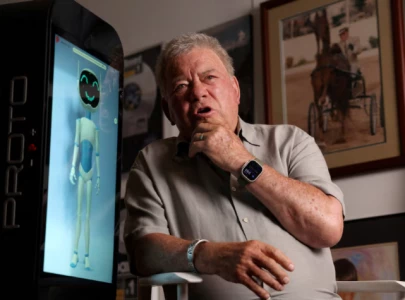
“[Outlawed] Tehreek-e-Taliban Pakistan’s chief Mullah Fazullah has survived several operations by Afghan security forces in recent months – but I’m sure he will not evade us forever,” Dr Abdullah Abdullah, the chief executive of Afghanistan, said on Wednesday.
Mullah Fazlullah, also known as Mullah Radio, had found a safe haven in eastern Afghanistan after he and his loyalists were routed in a military operation in Swat in 2009. Since then, he has been using the Afghan soil as a launching pad for mounting attacks on Pakistan. Pakistani officials have repeatedly asked Kabul to take action against Mullah Fazlullah.
Pakistan does not ‘cooperate in anti-terrorism activities’, claims Abdullah Abdullah
“It is not our policy to harbour any terrorist against any country,” Dr Abdullah told The Express Tribune in an exclusive chat in Kabul where he received a Pakistani delegation for an unofficial security dialogue.
“We’re ready to take risks but then we also expect Pakistan to stand by us for the sake of the greater good,” he added. “The gravity of the situation is such that we should think and act differently.” Kabul also accuses Pakistan of harbouring Afghan Taliban, but Islamabad denies the accusation.
He did not agree with the perception that Afghanistan’s territory was being used against Pakistan and dispelled the impression that certain ethnic groups in the country were ‘anti-Pakistan’.
Mullah Omar’s death and peace process
Pakistan brokered the first face-to-face talks between Afghan officials and Taliban representatives in July. The nascent initiative, officially named Murree Peace Process, was called off after the news of death of Taliban’s long-time leader Mullah Omar was leaked to the media. Pakistani officials believe some Afghan officials leaked the news in an attempt to sabotage the Murree Peace Process.
Organisers of terrorist attacks still exist in Pakistan’

But Dr Abdullah said Kabul did not know Mullah Omar had died two years ago. “We were told that the [peace] talks were taking place with his [Omar’s] blessing… who leaked the news [of Omar’s death] … why and how this happened… this is not important anymore,” he said. “What is important is why this was kept from us. It was clear breach of trust.”
Dr Abdullah added that US officials also confirmed Mullah Omar’s death and informed the Afghan government about the development.
Akhtar Mansoor’s condition
The Afghan chief executive confirmed the new Taliban supremo, Mullah Akhtar Mansoor, was alive but added that he was injured. Some western news agencies have claimed that Mullah Mansoor was fatally injured in a gunfight during a Taliban meeting in the Kuchlak area of Balochistan early this month.
Dr Abdullah claimed that the Taliban have been weakened by divisions and that Kabul was ready to start talks with ‘reconcilable’ leaders of the movement.
Pak-Afghan ties
The Afghan chief executive seemed satisfied with the recent assurances from Pakistani leaders on working for peace and stability in Afghanistan. “There is recognition of change in [the policies of] Pakistan at the highest level in Afghanistan,” he said.
Dr Abdullah says he doubts Pakistan’s peace role
However, Dr Abdullah added that the perception of Pakistan at the public level has not yet changed. “It will take time for common Afghans to be on-board. They have doubts which need to be removed through actions.”
At the same time the Afghan leader recognised the concerns of Pakistani leaders about Afghanistan. “We understand that Pakistan has legitimate concerns but we too have legitimate concerns. No doubt, there is urgency of dealing with the situation and we are clear it will take time,” he added.
Talking to the members of the Pak-Afghan unofficial dialogue, he supported the track-II process and said such contacts could help in finding solution to problems. “Afghanistan does not interfere in the internal affairs of neighbouring countries and hopes its neighbours will not interfere in Afghanistan’s affairs.”
A similar sentiment also reverberated during a meeting of the delegates of Pak-Afghan unofficial dialogue with Afghanistan’s National Security Adviser Hanif Atmar.
Experts call for strict Pak-Afghan border management
Atmar, while welcoming Prime Minister Nawaz Sharif’s support for Afghanistan’s National Unity Government in the recent Heart of Asia conference, said such statements ‘which reaffirm Afghanistan’s sovereignty’ would be regarded as a confidence-building step within Afghan political circles.
He added that the Afghan government’s commitment to the reconciliation process should also be recognised to neutralise those opposed to talks.
Atmar hoped that Pakistani institutions would “match their words with actions against terrorist networks that are threatening us all.” He hoped the upcoming visit of General Raheel Sharif would result in some concrete counterterrorism steps to address mutual security challenges.
Published in The Express Tribune, December 24th, 2015.








1730959638-0/trump-(19)1730959638-0-270x192.webp)








COMMENTS (6)
Comments are moderated and generally will be posted if they are on-topic and not abusive.
For more information, please see our Comments FAQ